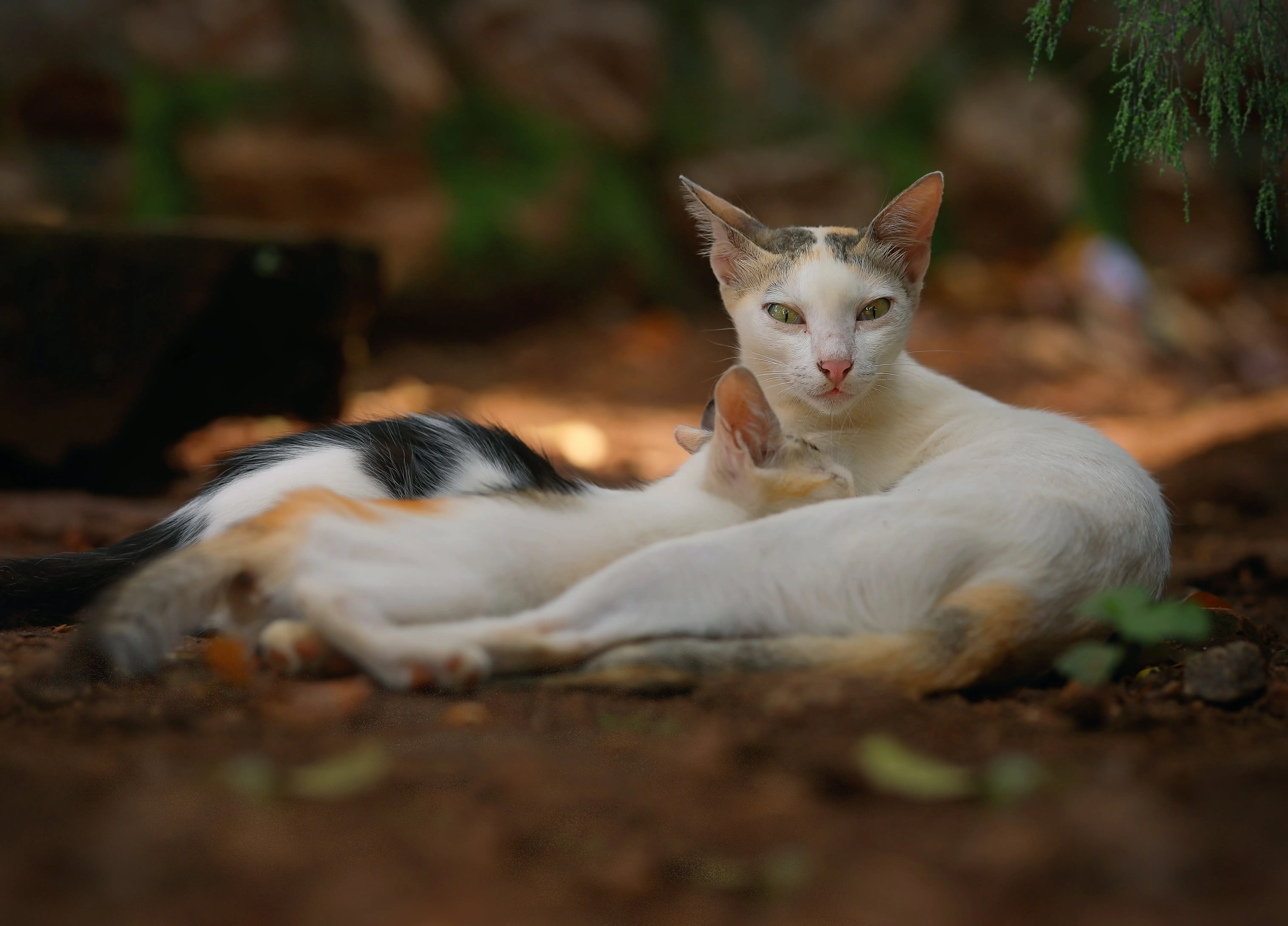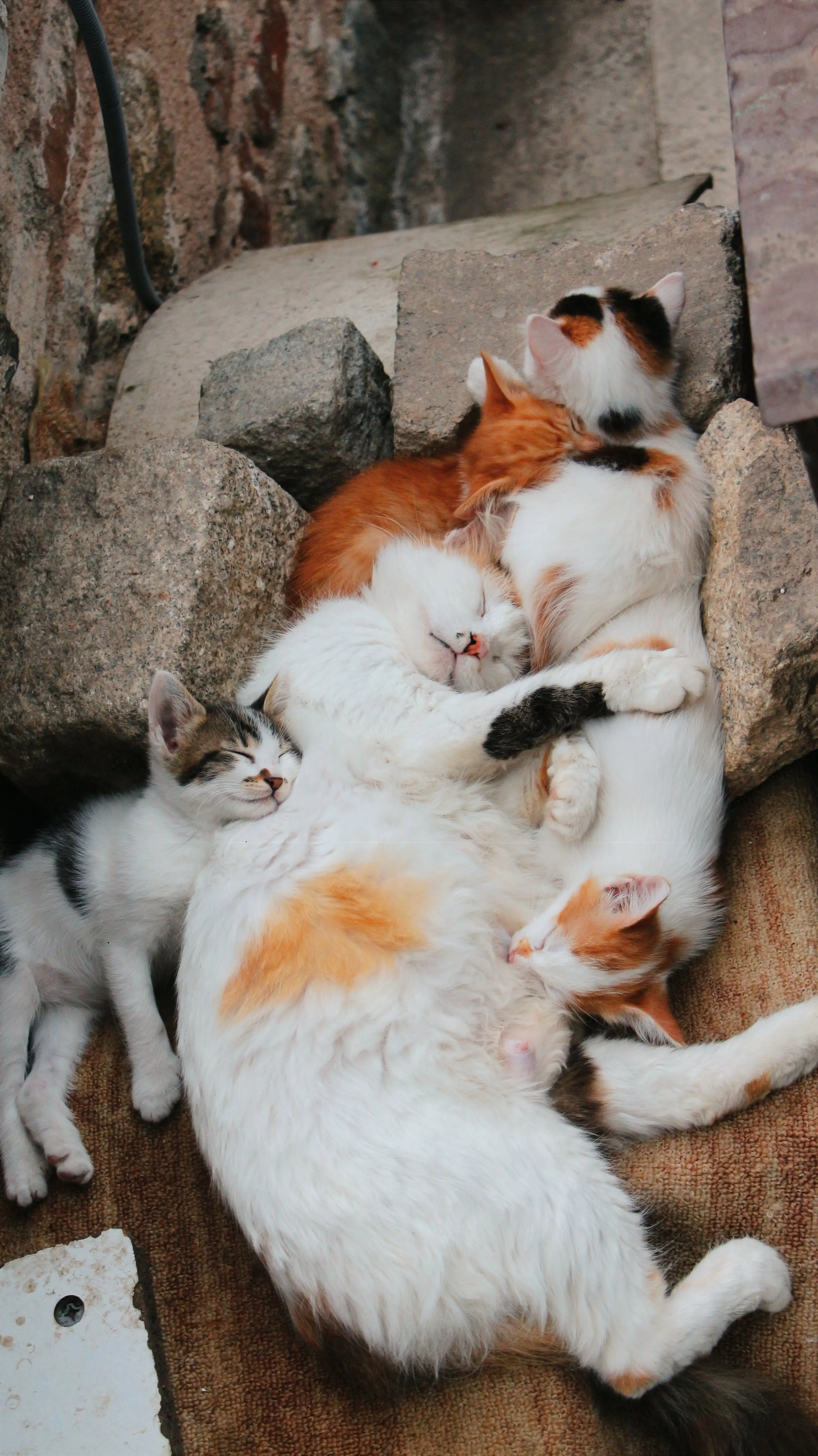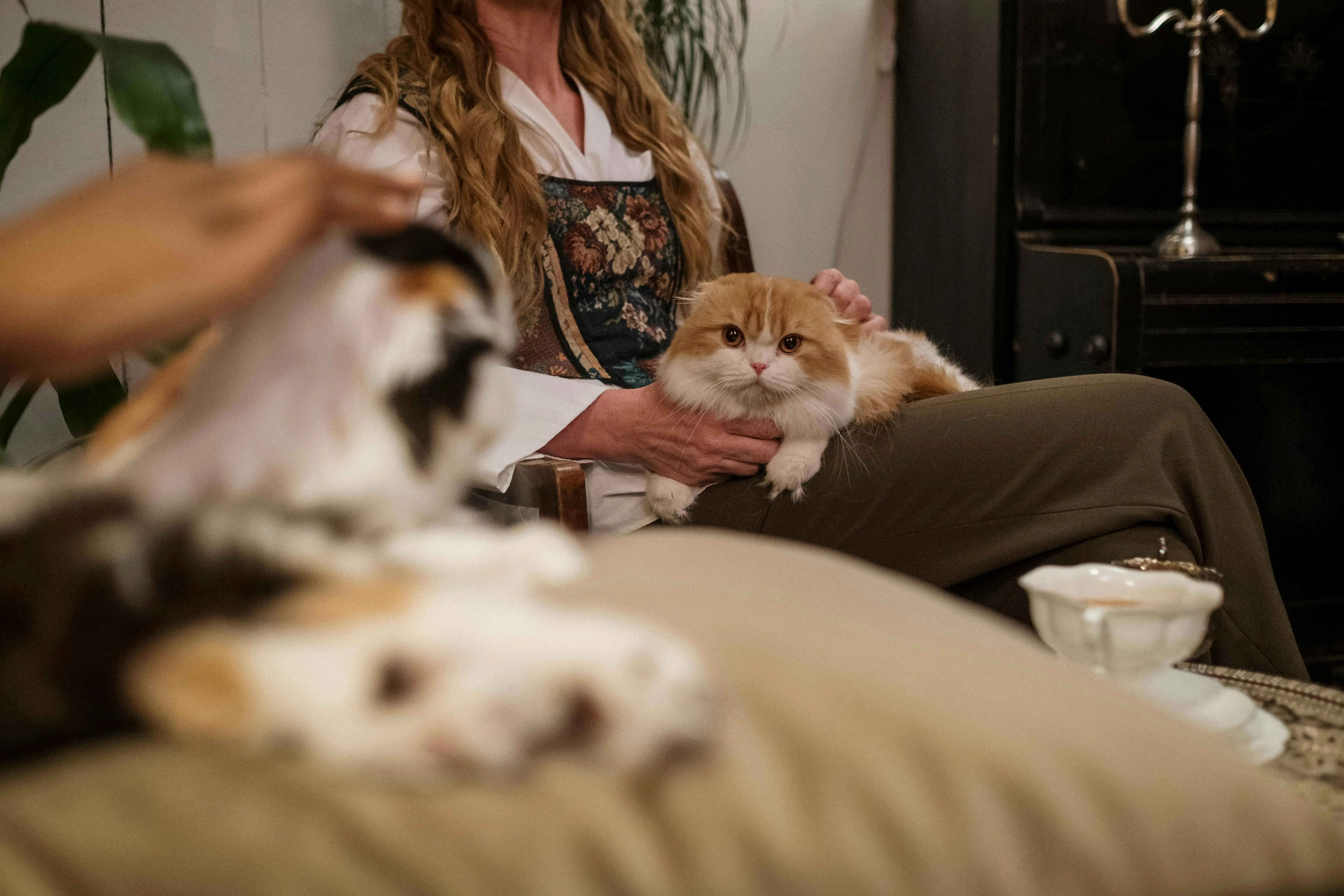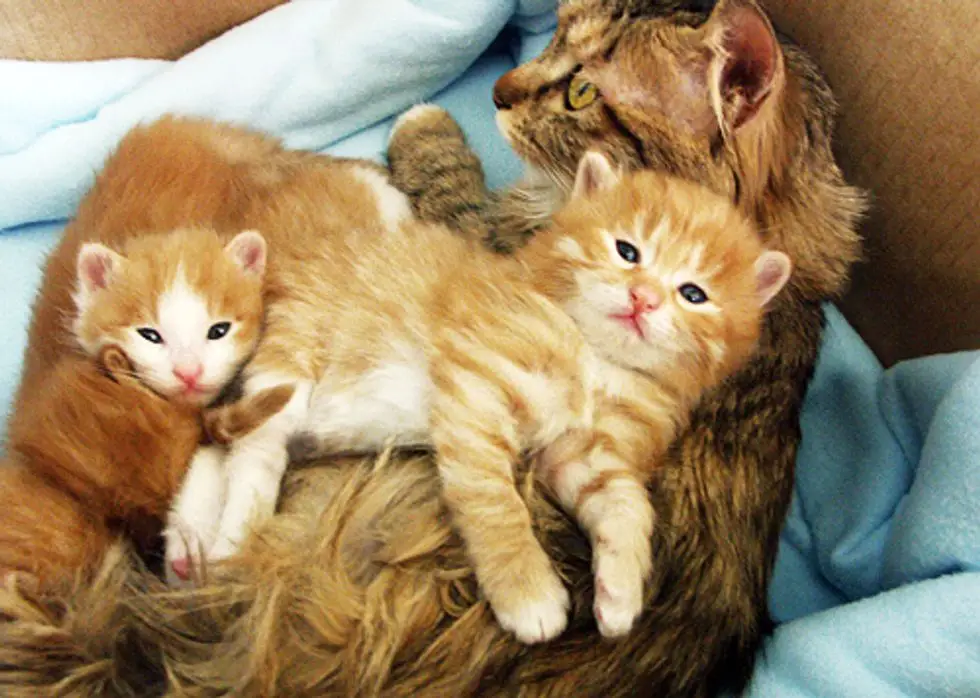Are you considering adding a feline companion to your family? Cats make wonderful pets for families, bringing joy, love, and entertainment into our lives. They are known for their independent nature, low maintenance requirements, and ability to form strong bonds with their human counterparts. However, finding the perfect cat for your family can be a daunting task, especially with so many breeds and personalities to choose from. In this blog post, we will explore the world of cats for families, discussing the best hypoallergenic cats, the compatibility of cats and dogs, the advantages of short-haired cats, and more. So let's dive in and find the ideal feline companion that will bring happiness to your entire family!
Finding the Perfect Cat for Your Family

Choosing a cat that suits your family's lifestyle and preferences is crucial for a harmonious coexistence. Here are some factors to consider when searching for the perfect feline friend:
Temperament and Personality
Just like humans, cats have their own unique personalities. Some cats are more laid-back and enjoy lounging around, while others are energetic and playful. It's important to assess your family's activity level and choose a cat that matches it. If you have young children who love to play, an active and social cat breed like the Bengal or Abyssinian might be a great fit. On the other hand, if your family prefers a calm and quiet atmosphere, a breed such as the Ragdoll or British Shorthair would be more suitable.
Age and Energy Level
Consider the age of your family members and the energy level you can dedicate to a cat. Kittens require lots of attention, socialization, and playtime. While they are incredibly cute and entertaining, they demand more time and effort compared to adult cats. If you have small children, it's essential to choose a cat that is tolerant and patient with kids. In this case, an adult or senior cat may be a better choice as they tend to be more relaxed and less demanding.
Lifestyle and Time Commitment
Evaluate your family's lifestyle and the time you can allocate to your feline companion. Some cats, like the Sphynx or Devon Rex, require regular grooming due to their lack of fur. Others, such as the Maine Coon or Norwegian Forest Cat, have thick coats that need occasional brushing. Additionally, if your family travels frequently or has a busy schedule, consider adopting two cats so they can keep each other company during your absence.
Finding the perfect cat for your family is a highly individual decision. Take your time to research different breeds, visit local shelters, and interact with potential feline candidates before making your final choice. Remember, a well-informed decision will ensure a lifelong bond between your family and your new furry friend.
The Best Hypoallergenic Cats for Families

For families with allergies, finding a hypoallergenic cat can make all the difference. Hypoallergenic cats produce fewer allergens, reducing the risk of triggering allergic reactions in sensitive individuals. Here are some of the best hypoallergenic cat breeds:
Siberian
Originating from Russia, the Siberian cat is known for its long, luxurious coat that surprisingly produces less Fel d 1 protein (a common allergen found in cat saliva and dander) compared to other cat breeds. This makes them a suitable option for families with allergies. Siberians are also friendly, social, and great with children, making them an excellent choice for families.
Balinese
The Balinese cat is often referred to as the "long-haired Siamese" due to its similar appearance but with a longer coat. Despite the length of their fur, Balinese cats produce lower allergen levels, making them a hypoallergenic option. They are intelligent, affectionate, and enjoy being in the company of their family members.
In addition to Siberians and Balinese cats, other hypoallergenic cat breeds include the Russian Blue, Cornish Rex, and Devon Rex. It's important to note that while these breeds produce fewer allergens, individual reactions may vary. If you or a family member have severe allergies, it's recommended to spend time with the specific cat breed you are considering before bringing one home.
Table 1: Hypoallergenic Cat Breeds
| Breed | Coat Type | Allergen Level | Temperament |
|---|---|---|---|
| Siberian | Long | Low | Social, friendly |
| Balinese | Long | Low | Intelligent, affectionate |
| Russian Blue | Short | Low | Reserved, gentle |
| Cornish Rex | Short, curly | Low | Energetic, mischievous |
| Devon Rex | Short, wavy | Low | Curious, playful |
Cats and Dogs: A Perfect Match for Families

Many families wonder if cats and dogs can coexist harmoniously. The good news is, they can! With proper introductions and gradual socialization, cats and dogs can become the best of friends. Here's how to ensure a successful integration:
Slow and Controlled Introductions
When introducing a new cat to your resident dog (or vice versa), it's crucial to take it slow. Start by keeping them separated and allow them to become familiar with each other's scents. Swap bedding between the two animals so they can get accustomed to each other's smell. Gradually progress to short, supervised interactions, always rewarding positive behavior with treats and praise.
Supervised Interactions
During the initial stages of their relationship, it's essential to closely supervise interactions between your cat and dog. Keep the dog on a leash or use baby gates to create barriers if necessary. This will allow them to observe each other without direct physical contact, reducing the risk of any aggressive behavior.
Over time, as your cat and dog become more comfortable with each other, you can gradually increase the duration of their interactions. However, always monitor their behavior and separate them if any signs of aggression or discomfort arise.
Providing Separate Spaces
To ensure harmony in your home, provide separate spaces for your cat and dog. Cats typically appreciate vertical territory, so installing cat trees or shelves where they can climb and observe from above is a great idea. Additionally, make sure each pet has their own food, water bowls, litter boxes, and cozy resting areas to avoid any potential conflicts.
List 1: Tips for Introducing Cats and Dogs
- Take it slow and control the introductions.
- Allow them to become familiar with each other's scents before meeting face-to-face.
- Reward positive behavior with treats and praise.
- Initially, keep supervised interactions with physical barriers if needed.
- Provide separate spaces and resources for both pets.
Short Haired Cats: Ideal for Families

If your family prefers a low-maintenance option in terms of grooming, short-haired cats are the way to go. Here are some popular short-haired cat breeds that are ideal for families:
American Shorthair
The American Shorthair is one of the most beloved cat breeds due to its friendly nature and adaptability. This breed is known for being excellent with children and their easygoing personality. With their short coat, they require minimal grooming, making them a practical choice for families.
Siamese
Siamese cats are not only famous for their stunning blue eyes and distinctive color points, but also for their short, sleek coat. These cats are highly social, vocal, and enjoy being the center of attention. Siamese cats are great companions for families, especially those that appreciate a talkative and affectionate feline friend.
In addition to American Shorthairs and Siamese cats, other short-haired cat breeds suitable for families include the Bengal, Burmese, and Abyssinian. These breeds offer the beauty and charm of cats without requiring extensive grooming sessions.
Table 2: Short-Haired Cat Breeds
| Breed | Coat Type | Temperament |
|---|---|---|
| American Shorthair | Short | Friendly, adaptable |
| Siamese | Short | Vocal, sociable |
| Bengal | Short | Energetic, playful |
| Burmese | Short | Gentle, affectionate |
| Abyssinian | Short | Active, intelligent |
Choosing the Right Cat for Your Family
When selecting a cat for your family, it's essential to consider various factors beyond breed alone. Here are some additional aspects to keep in mind:
Adoption vs. Purebred Cats
While purebred cats come with predictable characteristics and appearances, adopting a mixed-breed or shelter cat can bring unique joy and satisfaction. Mixed-breed cats often possess appealing traits from various breeds, making them visually stunning and emotionally fulfilling companions. Additionally, adopting a cat from a shelter gives you the opportunity to provide a loving home to a deserving animal in need.
Kitten vs. Adult Cat
Deciding between a kitten and an adult cat depends on your family's preferences and lifestyle. Kittens require more time, attention, and training. They are incredibly cute but demand plenty of energy and dedication. Adult cats, on the other hand, may already be trained, socialized, and have established personalities. They often adapt quickly to new environments and can be a great fit for families seeking a more settled companion.
Ultimately, the choice between adopting a purebred kitten or an adult shelter cat is a personal one. Consider your family's ability to care for and train a kitten, as well as your desire to give a loving home to a cat in need. Whichever route you choose, rest assured that both options can lead to a fulfilling and loving bond with your feline friend.
Family-Friendly Felines: Top Cat Breeds for Kids
If you have children, selecting a cat breed known for its compatibility with kids is vital. Here are some of the top cat breeds that are generally considered kid-friendly:
Maine Coon
The Maine Coon is not only one of the largest domesticated cat breeds but also one of the most gentle and tolerant. They get along exceptionally well with children, offering endless entertainment and companionship. Their playful nature and patient demeanor make them an ideal choice for families with kids.
Ragdoll
True to their name, Ragdolls are incredibly relaxed and enjoy being held and cuddled. They are known for their docile temperament and tendency to go limp when picked up, earning them the nickname "puppy cats." Ragdolls are excellent with children, often following them around the house and participating in their games.
Other cat breeds known for their compatibility with kids include the Abyssinian, British Shorthair, and Birman. However, it's important to remember that individual cats' temperaments can vary, so spending time with the specific cat you are considering is essential to ensure a harmonious match.
List 2: Kid-Friendly Cat Breeds
- Maine Coon: Gentle and tolerant, perfect for families with kids.
- Ragdoll: Docile and relaxed, enjoys being held and cuddled.
- Abyssinian: Energetic and playful, an ideal companion for active children.
- British Shorthair: Easygoing and calm, great for families seeking a more laid-back cat.
- Birman: Affectionate and gentle, forms strong bonds with its human companions.
Cats for Families: What You Need to Know
Before bringing a cat into your family, it's important to be aware of the responsibilities and needs associated with cat ownership. Here are some key points to consider:
Time Commitment
Cats require daily care, including feeding, grooming, playtime, and litter box maintenance. Depending on the cat's age and energy level, the time commitment may vary. Before adopting a cat, ensure that you have enough time to dedicate to their well-being and happiness.
Financial Considerations
Owning a cat comes with financial responsibilities. Consider expenses such as food, veterinary care, vaccinations, grooming supplies, toys, and potential emergency medical costs. It's important to budget accordingly and ensure that you can provide for your feline companion's needs throughout their life.
Additionally, consider pet insurance or setting aside an emergency fund for unexpected veterinary expenses. This will give you peace of mind knowing that your cat's health is taken care of in case of an accident or illness.
Allergies and Sensitivities
If anyone in your family has allergies or sensitivities to cats, it's crucial to address this concern before bringing a cat into your home. As discussed earlier, certain hypoallergenic cat breeds produce fewer allergens and may be better suited for families with allergies. However, it's recommended to spend time with the specific breed you are considering to gauge individual reactions.
Table 3: Factors to Consider when Bringing a Cat into Your Family
| Factor | Consideration |
|---|---|
| Time Commitment | Ensure you have enough time to dedicate to daily care, playtime, grooming, and litter box cleaning. |
| Financial | Budget for food, veterinary care, grooming supplies, toys, and potential emergency expenses. |
| Allergies | Consider hypoallergenic cat breeds or spending time with the specific breed you are considering. |
| Lifestyle | Evaluate your family's lifestyle and ensure it aligns with the needs of owning a cat. |
Kid-Approved Cats: Which Breeds Are Best?
When it comes to selecting a cat that children will love and connect with, certain breeds tend to be more kid-approved than others. Here are some popular cat breeds that children often adore:
Sphynx
Known for their striking appearance, the Sphynx is a hairless cat breed that captivates both children and adults. Their lack of fur makes them unique and intriguing, while their friendly and affectionate nature endears them to kids.
Scottish Fold
Scottish Folds are famous for their folded ears, which give them an adorable and distinctive look. These cats are inherently sweet-natured, gentle, and enjoy human company. Their expressive eyes and cuddly demeanor make them a hit among children.
Other cat breeds that are usually adored by children include the Exotic Shorthair, Munchkin, and Persian. However, it's important to note that every child has their own preferences and connection to different cat breeds. Therefore, involving your child in the decision-making process and allowing them to interact with potential feline companions is crucial.
List 3: Cat Breeds Loved by Children
- Sphynx: Unique and captivating due to their hairless appearance.
- Scottish Fold: Adorable with their folded ears, known for their gentle nature.
- Exotic Shorthair: Cuddly and adorable, perfect for children who appreciate a plush toy-like appearance.
- Munchkin: Playful and fun-loving, their short legs often make them the center of attention.
- Persian: Elegant and gentle, their long, luxurious coat is irresistible to touch.
The Benefits of Having a Cat in Your Family
Having a cat as part of your family brings numerous benefits, both for adults and children. Let's explore some of the advantages of having a feline companion:
Emotional Support
Cats are excellent companions and provide emotional support to their human counterparts. They offer unconditional love, comfort during challenging times, and can even reduce stress and anxiety. The presence of a cat in the household has been shown to have a positive impact on mental well-being and overall happiness.
Teaching Responsibility
For families with children, owning a cat can be an opportunity to teach responsibility and empathy. Taking care of a pet involves feeding, grooming, and ensuring their general well-being. By involving children in these tasks, they learn valuable life skills, develop a sense of empathy, and become more accountable for their actions.
Companionship and Entertainment
Cats are known for their amusing behaviors, playful nature, and ability to keep us entertained for hours. They are natural comedians, performing acrobatics, chasing toys, or simply lounging in hilarious positions. Their presence adds joy and companionship to our lives, making every day brighter.
Health Benefits
Believe it or not, owning a cat can have positive effects on physical health too. Studies suggest that interacting with cats can lower blood pressure, reduce the risk of cardiovascular diseases, and boost the immune system. Furthermore, living with a cat can help children develop stronger immune systems from an early age, potentially lowering the risk of allergies and asthma.
Behind the Myth: Debunking 'Unfriendly' Cats
Cats have been unfairly labeled as aloof and unfriendly creatures, but this stereotype couldn't be further from the truth. Cats are highly social animals that form strong bonds with their human family members. However, it's important to understand their behavior and provide them with appropriate care and interaction. Here are some common misconceptions about cats:
Cats Are Independent and Don't Need Attention
While cats are more independent compared to dogs, they still require attention, affection, and mental stimulation. Regular play sessions, interactive toys, and quality time together strengthen the bond between cats and their families.
All Cats Are Aloof and Distant
Cats have individual personalities, just like humans do. While some cats may be more reserved and take time to warm up to new people, others are outgoing and seek attention from everyone they meet. It's essential to respect each cat's preferences and provide a safe and comfortable environment for them.
Cats Are Not Suitable for Families with Children
On the contrary, cats can make perfect companions for families with children. The key is to choose a cat breed known for its compatibility with kids, ensure proper introductions and supervision, and teach children how to interact gently and respectfully with feline friends. With the right guidance and support, cats and children can develop a loving and lifelong bond.
Cats make wonderful additions to families, providing love, companionship, and joy to all members. Finding the perfect cat for your family involves considering factors such as temperament, age, energy level, lifestyle, and compatibility with other pets. Whether you prefer hypoallergenic cats, short-haired breeds, or kid-friendly companions, there is a feline friend out there waiting to join your family.
Remember, choosing a cat is a long-term commitment, so take your time, do thorough research, and consider visiting local shelters or rescue organizations. By making an informed decision and welcoming a cat into your home, you're not only gaining a furry companion but also enriching your family's life in countless ways. So go ahead and embark on this exciting journey of finding the purr-fect feline companion for your family!
Comments
Post a Comment